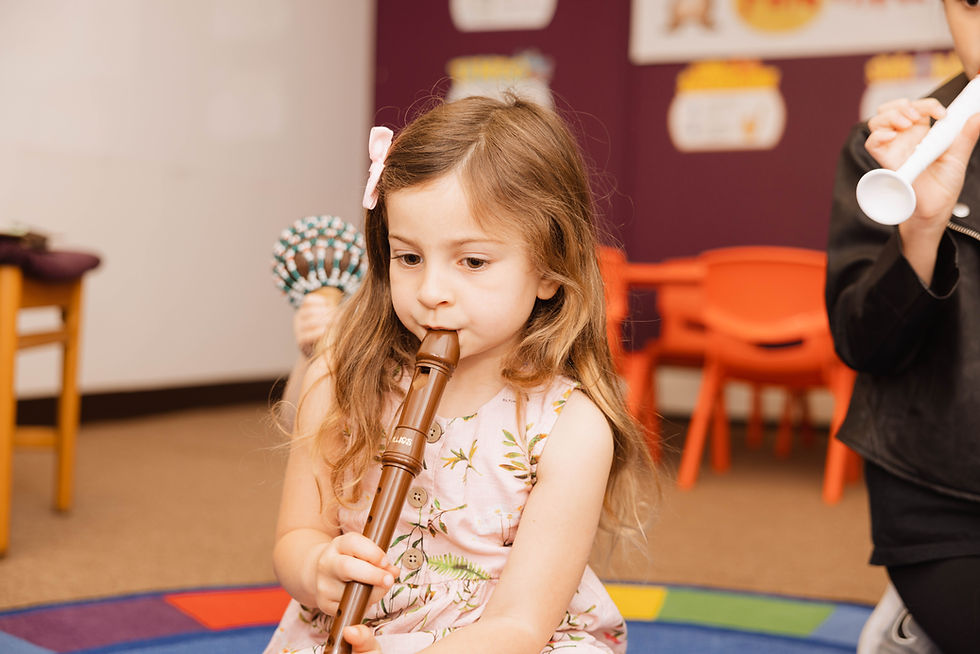How Playing Music Strengthens Both Sides of the Brain
- Nick Doak

- Oct 21, 2025
- 2 min read
West Chester Music Academy

Have you ever watched a musician play and wondered how they make it look so effortless? The truth is, there’s a lot more happening than meets the eye. When you or your child plays an instrument, your brain is working in overdrive, lighting up in ways few other activities can match. Music isn’t just an art form; it’s a full-brain workout.
A Symphony Inside the Mind
Every time you play an instrument, both hemispheres of your brain, the left and right sides, are engaged.
The left side handles logic, structure, and sequencing: reading notes, keeping time, and understanding rhythm.
The right side takes care of creativity, expression, and emotion: shaping a melody, feeling dynamics, and interpreting music.
When these two halves work together, something incredible happens. Your brain becomes stronger, more flexible, and more connected. Neuroscientists have even discovered that musicians have more robust communication between both hemispheres of the brain thanks to a thicker corpus callosum, which is the bridge of nerve fibers that connects them.
Building Focus and Memory
Music lessons aren’t just about learning notes; they’re about training focus, memory, and coordination. When a student reads sheet music, listens to pitch, and controls finger movements simultaneously, their brain is forming and strengthening neural pathways. This kind of multitasking sharpens attention span and improves memory retention, not just in music but in school and daily life too.
Studies have shown that children who study music often perform better in language, reading, and math because their brains are more efficient at processing and organizing information.
Boosting Emotional Intelligence
Music also strengthens the emotional centers of the brain. Students learn to express themselves, interpret mood and tone, and connect emotionally with the music they play. That emotional awareness extends beyond the instrument and helps kids and adults better understand and communicate their feelings in everyday situations.
Lifelong Benefits for Every Age
It’s never too early or too late to experience the cognitive benefits of music. For young learners, it builds critical developmental skills like focus, coordination, and emotional awareness. For adults, it helps keep the brain sharp, improves memory, and reduces stress. Whether you’re five or fifty, playing an instrument keeps your mind active and resilient.
The Brain Loves a Challenge
At West Chester Music Academy, we see it every day. Students grow more confident, focused, and creative through music. Each practice session strengthens not only their skills but their minds. Music doesn’t just make you a better musician; it makes you a better thinker, listener, and learner.




Comments